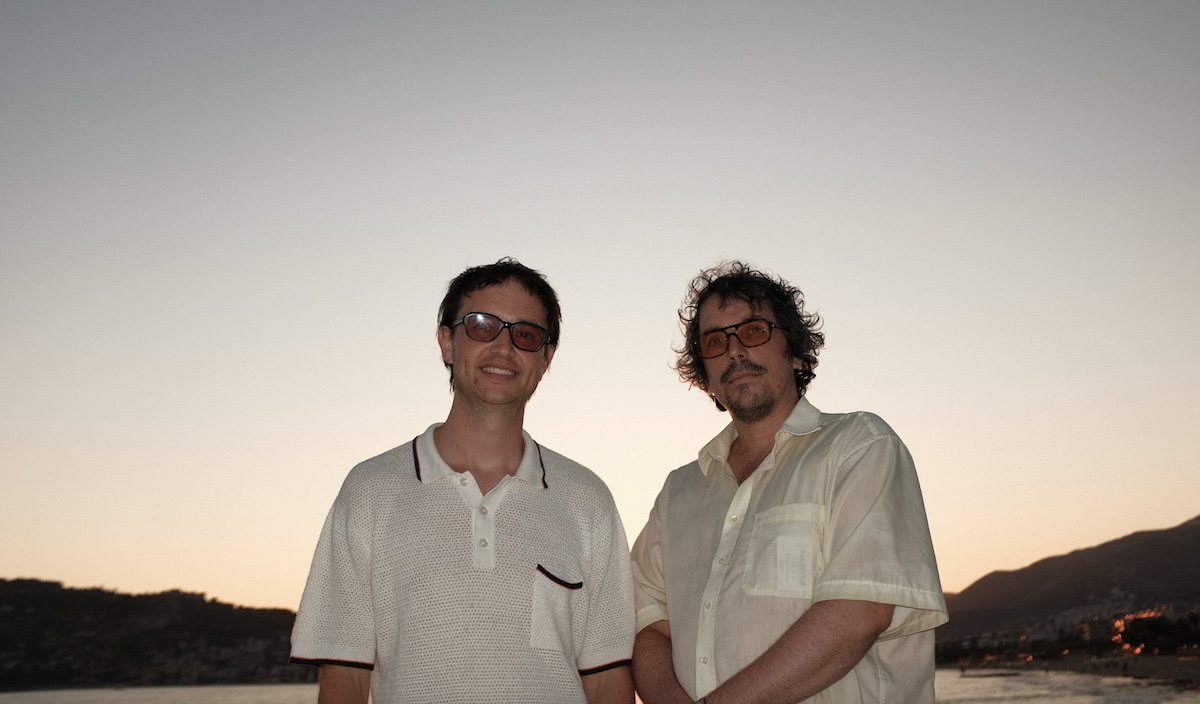SHOUSE, best known for their trilogy of global hits “Love Tonight”, “Won’t Forget You” and “Call My Name”is comprised of Jack Madin and Ed Service; a New Zealand and Australian duo who were still working their day jobs – Service as an arts community manager and Madin as a primary school teacher – when “Love Tonight” exploded in early 2021. Landing in the Top 10 in over 20 countries, earning Platinum certification in both the USA and UK, Triple Platinum in Australia, and Diamond status in France, the hit record has accumulated over 1 billion streams in its wake, and announced the emergence of a new global reaching Australian talent. With an eagerly anticipated debut album penned for release later this year, we caught up with the guys to find out more.
“Call My Name” wraps up what feels like a powerful trilogy alongside “Love Tonight” and “Won’t Forget You.” What story or emotional journey were you aiming to tell across these three tracks?
We’ve been calling it a trilogy — not in a plotted-out way, but in hindsight, it all connects. Love Tonight was the chant, the cry for connection. Won’t Forget You was about holding on to that bond, even when time and distance pull you apart. Call My Name is the return — that voice in the night, saying I’m still here. It’s devotion, longing, and continuity. These tracks weren’t just about making dance music — they were about making something to gather around. We feel like we’re not just making music in this genre — we’re making music for it. We own it. We love it. So get your friends together and sing it with us.
This new release ventures into more theatrical and expansive territory. What drew you to explore that sound and how did it evolve during the creative process?
It felt like a natural progression. As we embraced communal energy — choirs, shared vocals, long builds — the songs started growing in scale. Call My Name started off sparse, but the more we sat with it, the more space it seemed to want. So we gave it room to breathe, swell, weep. There’s something powerful in letting a track be a bit unguarded, a bit operatic, taking it to another level to Love Tonight and Won’t Forget You — and the challenge (both to us and the dancefloor) of the big key change! Not everything has to be cool and contained.
You brought together a wide range of collaborators on “Call My Name.” How did that collective energy shape the song and what was the collaboration process like behind the scenes
This one was truly built in community. It started in our mudbrick studio outside Naarm/Melbourne — and over months of slow, late-night sessions, it became something shared. We brought together friends, singers, artists, and neighbours. We’d cook together, talk, then hit record and hang out all night. It’s kind of like the studio sessions you imagine from your dreams of the ’70s. The choir you hear was recorded live in the room — not studio pros, but people we love. It’s a bit imperfect, a bit raw, and that’s the point. It’s not polished. It’s lived-in. That’s the sound we’re after.
Themes of connection, devotion and community seem central to your work. How do these ideas inform your songwriting and the atmosphere you try to create in your music?
It’s everything. We’re not interested in performance — we’re interested in participation. We want people to feel like they’re inside the song, not outside looking in. That’s why we work with choirs, why we write simple, powerful refrains. We want to build moments that feel shared — whether it’s five people in a room or five thousand on a field. That’s what we’re chasing: communitas.
You both come from unique professional backgrounds outside of music. Has that shaped your perspective on making and sharing art in ways that are different from the typical path?
Absolutely. Coming in from outside the industry bubble means we’re not trying to churn out content or tick boxes. We take our time. We ask why does this matter? before we ask how do we release it? That gives us space to get weird, to experiment, to work in spirals instead of straight lines. The process is half the point.
“Love Tonight” became a global anthem and launched you onto an international stage. How has that moment changed your outlook as artists and what’s stayed the same?
It was a wild experience. Seeing something we made in a mate’s warehouse in Brunswick turn into a chant sung in clubs around the world — that never gets old. But we’re still the same in a lot of ways. Still writing in Naarm. Still recording with friends. Still chasing feeling over formula. What’s changed is the reach. What’s stayed the same is the intention.
There’s a distinctive sense of unity in your music, especially through the use of group vocals and communal energy. Why is that collective spirit important to you?
Because music is one of the last truly human things. Singing together does something to people — it syncs us up. We want our shows, our songs, our sessions to be moments of collective release. It’s not about ego. It’s about dissolving ego, just for a minute, and remembering we’re part of something bigger.
“Call My Name” has a cinematic, almost spiritual quality. Were there any non-musical influences — like film, visual art, or literature — that helped guide the mood or vision?
There’s definitely something visual about it — light spilling into a room, mist on a hillside, those soft edges between night and morning. The song lives in that liminal space. We weren’t referencing any one artwork, but we were thinking about feeling — longing, return, the quiet after a big emotion. It’s devotional music for dancefloors.
You’ve collaborated with major artists and had chart-topping tracks, but your sound remains unmistakably yours. How do you maintain that authenticity in an ever-commercial landscape?
We stay close to our people. We don’t rush. We don’t chase the algorithm. If a song doesn’t move us in the room, it doesn’t leave the room. Authenticity isn’t a brand — it’s just how we work. Slowly. Honestly. Together.
The electronic scenes in Australia and New Zealand have been thriving. What’s your take on the current landscape back home, and who’s exciting you right now?
There’s so much good energy bubbling here. In Naarm, the Miscellania scene has become a real home for new, genre-fluid experimentation. It’s political, it’s unpredictable, it’s necessary. Close Counters are doing beautiful things — weaving live instrumentation into electronic frameworks in a way that feels warm and urgent. There’s a lot of heart-first energy out there right now, and we’re here for it.
Now that this trilogy is complete, what’s next creatively? Do you feel pressure to follow up on such major success, or are you letting things unfold more organically?
We’ve got an album coming out later this year, but we’re not rushing! This trilogy felt like a story told — connection, memory, return. Now we’re listening to the silence after. We’ve been writing slowly, hosting workshops, working on art projects such as Communitas, spending time in rooms with people.
If listeners take away one feeling or message from “Call My Name,” what would you hope it is?
That someone’s out there listening. That music is still alive with humanity. That the dancefloor can still be a sacred space of transcendence




